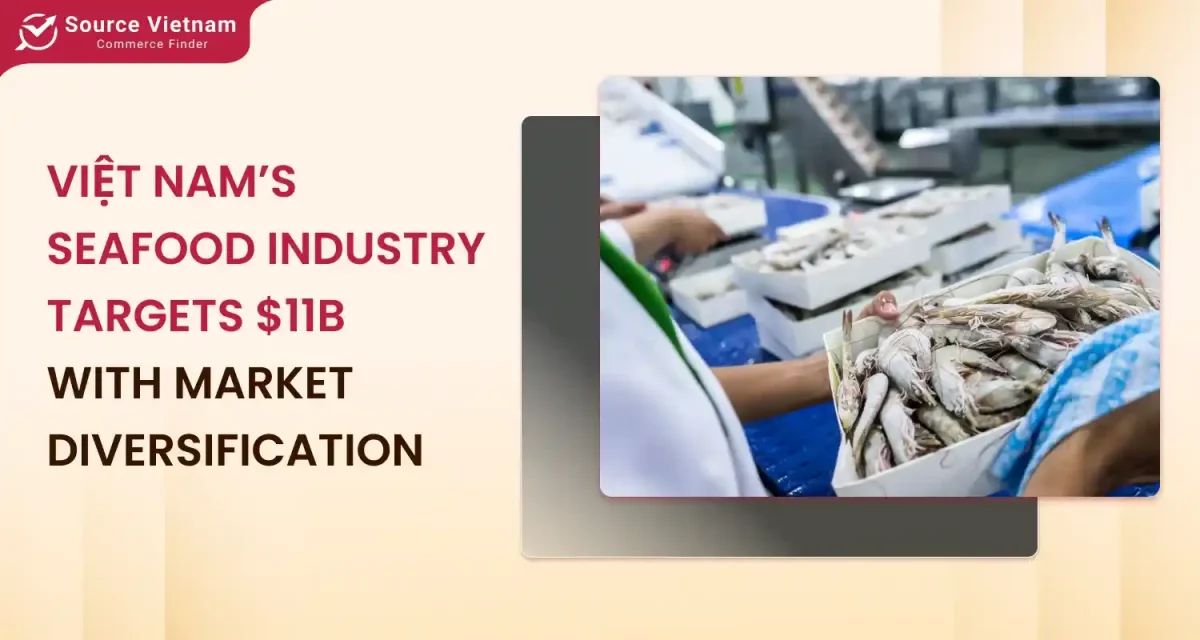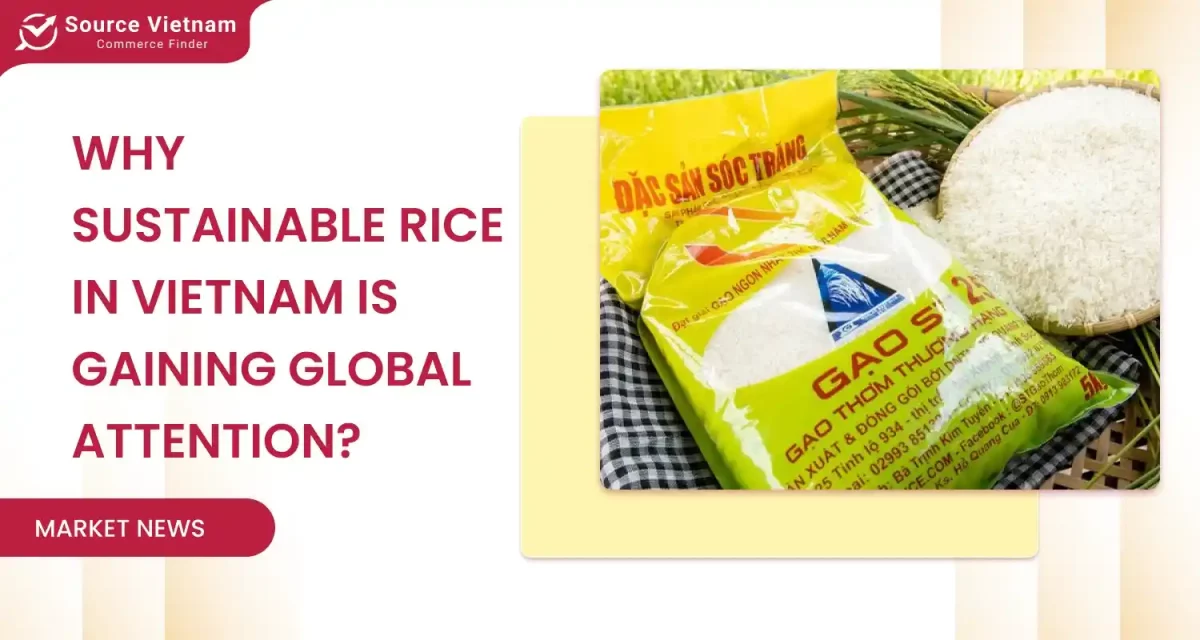Insight:
- Vietnam’s agricultural exports surged to $24.14 billion in early 2024, showcasing robust growth and global market potential.
- Vietnamese businesses should maximize export opportunities by utilizing Free Trade Agreements, meeting international standards, and expanding market presence.
- Enhancing competitiveness requires leveraging government support and adopting advanced farming techniques to tackle export challenges effectively.
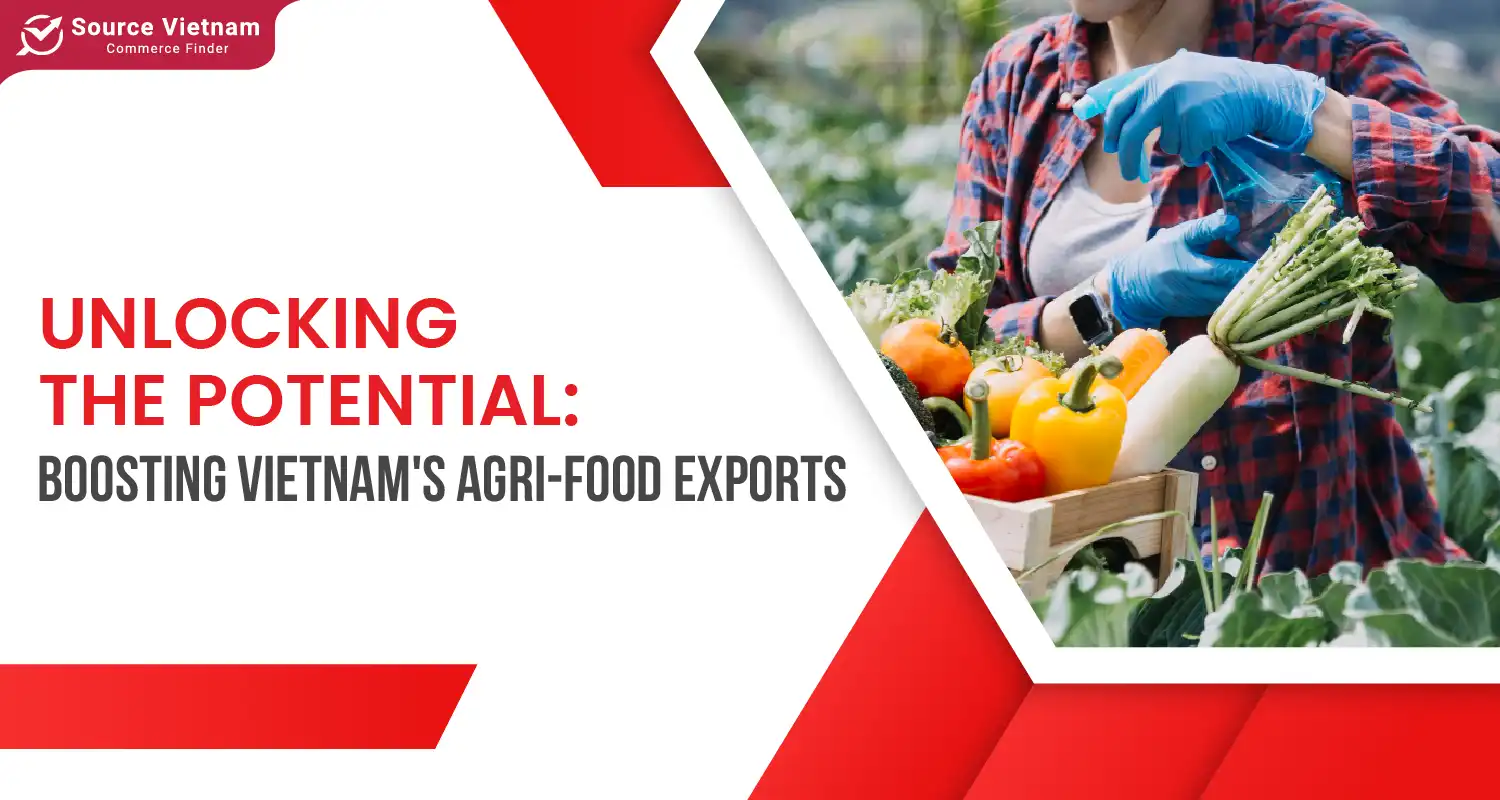
Enhancing Vietnam’s agricultural export efficiency
Vietnam’s agricultural exports reached $24.14 billion in the first five months of 2024. In May alone, revenue was $5.06 billion, an increase of 11.2% compared to the same period last year. Additionally, Vietnam’s exports of agricultural, forestry, and fishery products saw significant growth across various regions, including the Americas, Africa, Asia, Europe, and Oceania. The United States, China, and Japan remain Vietnam’s top export markets. Exports to the US increased by 23.9% and accounted for 20.6% of the market share. China accounted for 19.2% and Japan for 6.7%.
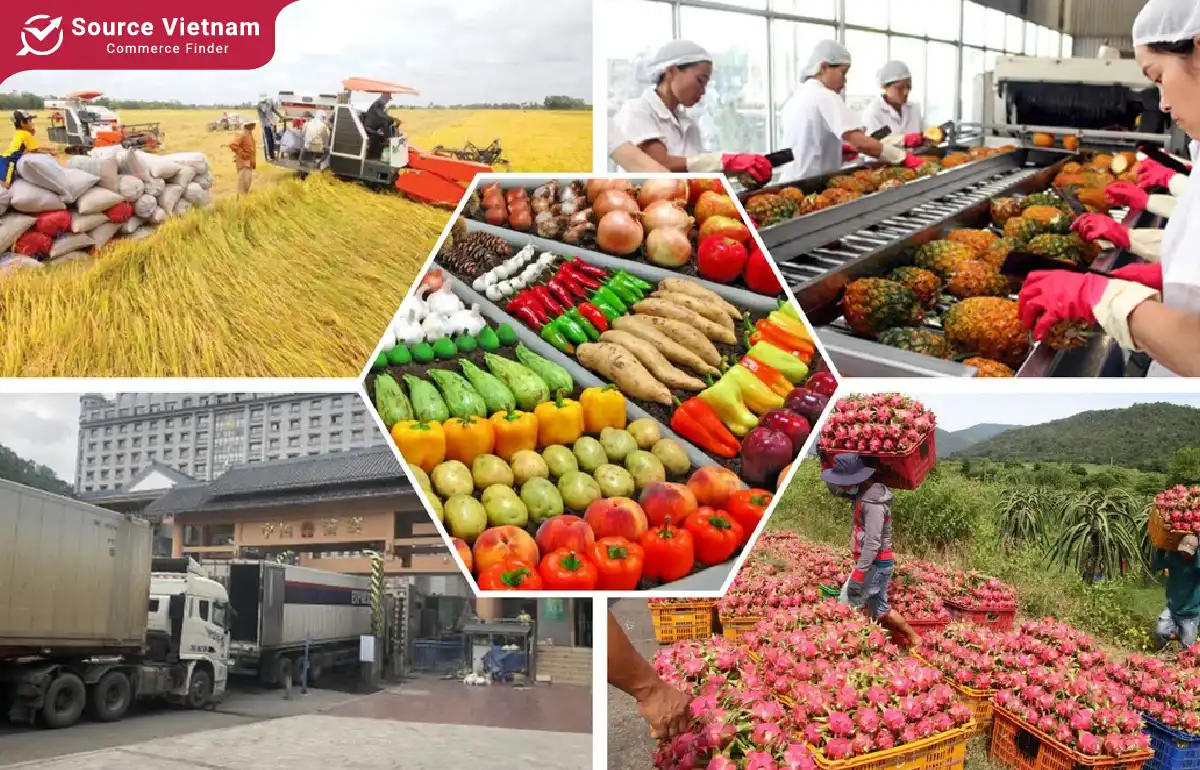
According to Statista, in 2023, the manufacturing sector contributed the most to Vietnam’s GDP, accounting for approximately 23.88%. Agriculture, forestry, and fisheries followed closely, contributing about 11.96%.
The United States – A key export market for Vietnam’s agricultural, forestry, and fisheries sectors
In 2023, the United States was the second largest export market for Vietnam’s agricultural, forestry, and fishery products, accounting for 20.7% of total export value. Vietnam has dominated the US cashew market, capturing 88.7% of total imports. Vietnam has made significant strides in exporting seafood to the US, especially shrimp, catfish, and tuna.
Despite challenges, consumer trends in the US are shifting towards processed and value-added catfish products, creating opportunities for Vietnam to diversify its product range and invest in deeper processing. Furthermore, exports of cinnamon and cardamom from Vietnam to the US have been impressive. Notably, Vietnamese cinnamon accounts for 35% of total US cinnamon imports.
The increasing demand for products that can boost the immune system, especially after the COVID-19 pandemic, has highlighted the role of cinnamon and cardamom essential oils in US consumer trends. Experts believe that ensuring high-quality raw materials and strictly adhering to organic farming standards will be key to enhancing the competitiveness of Vietnamese products compared to those from India, Sri Lanka, and Indonesia. This not only meets the growing demands of consumers but also solidifies Vietnam’s position in the promising export market.
Key considerations for Vietnamese agri-food exporters
Understanding global market dynamics
Vietnam’s agricultural exports have seen significant growth in recent years, driven by increasing global demand for a wide variety of products. The country is renowned for its diverse range of fruits, including durian, longan, lychee, mango, dragon fruit, coconut, banana, pineapple, and passion fruit. Grown in fertile soil and a favorable climate, these fruits offer distinctive flavors, vibrant colors, and high nutritional value. This has positioned Vietnam as a major player in the global fruit export market.

Beyond fresh fruits, Vietnam also exports a variety of processed food products such as canned fruits, dried fruits, fruit juices, and fruit jams. The growing demand for these products has allowed exporters to diversify their offerings and cater to different market segments, enhancing their competitiveness.
Navigating regulatory requirements
Exporting agricultural products necessitates strict adherence to food safety regulations. Importing countries often impose rigorous phytosanitary and food safety standards to safeguard the health of their consumers. For Vietnamese exporters, compliance with these regulations is not merely an option but a prerequisite for successful market access and maintaining a competitive edge in the global marketplace.
Regions such as Northeast Asia, including China, Japan, and South Korea, as well as the European Union, have particularly stringent food safety requirements. For instance, the General Administration of Customs of China (GACC) has established comprehensive regulations governing the import of food products, demanding strict compliance from exporters. Similarly, the European Union maintains rigorous traceability and quality standards, including maximum residue limits for pesticides, to ensure food safety.
Leveraging case studies and success stories from others
By studying successful case studies, we can gain valuable insights into meeting market demands and achieving international success.
Thanh Ha lychee from Hai Duong province is a prime example of a Vietnamese agricultural product that has successfully penetrated high-end global markets. Renowned for its superior quality and distinctive flavor, Thanh Ha lychee has gained popularity in demanding markets such as China, Japan, France, the United States, and South Korea.
The success of Thanh Ha Lychee underscores the importance of adhering to strict quality and safety standards and leveraging market intelligence to enhance export opportunities.
Utilizing government support resources
The Ministry of Industry and Trade and the Ministry of Agriculture and Rural Development have been proactively supporting Vietnamese businesses to overcome export challenges through various initiatives. These initiatives include establishing cooperation mechanisms, providing market information and guidance, organizing conferences on Free Trade Agreements (FTAs), and collaborating with local authorities to facilitate trade and address export barriers.

Additionally, the implementation of geographical indication (GI) codes for growing areas and packaging facilities has significantly contributed to aligning production with market demands, enhancing the reputation and quality of Vietnamese agricultural products. With over 7,000 GI codes for growing areas and 1,600 for packaging facilities issued across 56 provinces, Vietnam has made significant strides in promoting exports to key markets.
Opportunities and challenges for agricultural and food businesses in Vietnam
While the global export market shows promising signs, Vietnamese agricultural producers still face numerous challenges. To thrive, they need to adopt robust growth strategies.
Firstly, Vietnam should leverage its Free Trade Agreements (FTAs) to expand market access and enhance export competitiveness. FTAs not only facilitate trade and investment but also offer opportunities for knowledge exchange and access to advanced technologies from partner countries. Additionally, diversifying export markets beyond major economies like China and the US will help reduce dependency and enhance resilience.
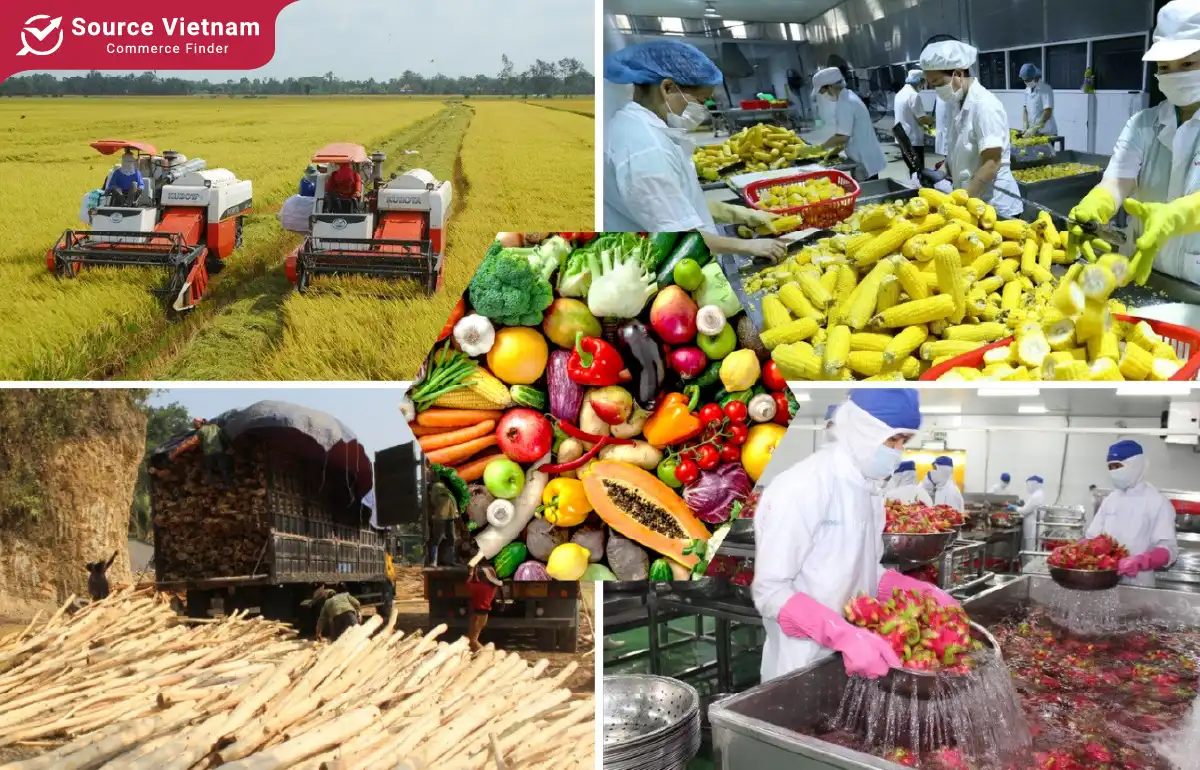
Secondly, quality and safety are paramount for long-term success in the global market. Adherence to international standards, such as GlobalGAP certification, will build consumer trust and solidify Vietnam’s reputation as a reliable exporter.
Furthermore, adopting modern farming techniques, precision agriculture, and value-added processing will enhance efficiency and competitiveness. Investing in strong branding and marketing strategies is also crucial for differentiating Vietnamese products in the global market. Highlighting unique selling points and sustainable production methods can create a strong brand image.
Finally, collaborating with industry associations and networks can provide valuable benefits and opportunities. Actively participating in industry forums facilitates knowledge sharing, market intelligence, and access to support services that can boost growth and innovation.
Key recommendations
To enhance the export performance of agricultural and food processing products, businesses should consider the following recommendations:
- Conduct thorough market research: Regularly update your understanding of market trends, consumer preferences, and regulatory requirements in your target markets. By thoroughly researching these areas, businesses can make informed strategic adjustments, anticipate shifts, and align their offerings with current demands. This proactive approach helps maintain a competitive edge and effectively navigate the complexities of global markets.
- Comply with export standards and certifications: Strictly adhere to international phytosanitary and food safety standards, as well as the specific regulations of importing countries. Obtaining relevant certifications—such as GlobalGAP or HACCP—ensures compliance and facilitates smoother export processes. Meeting these standards not only minimizes risks but also builds trust and credibility with international buyers.
- Optimize the supply chain: Develop and maintain a well-structured supply chain that covers all stages from production to distribution. Efficient management of each component is crucial for preserving product quality, ensuring traceability, and meeting delivery schedules. A streamlined supply chain reduces costs, prevents delays, and supports overall operational effectiveness.

- Build strategic partnerships: Establish collaborations with distributors, importers, and retailers in target markets to leverage their established networks and local expertise. Strategic partnerships can provide valuable resources, open new market opportunities, and facilitate smoother market entry. Working closely with local partners enhances market penetration and helps adapt to regional nuances.
- Commit to continuous improvement: Continuously improve product quality, packaging, and branding to adapt to evolving consumer preferences and market trends.
Conclusion
The agricultural and food sector has played a pivotal role in driving Vietnam’s economic growth. Vietnamese businesses have made remarkable strides in improving market access and enhancing competitiveness, which has significantly contributed to the country’s integration into the global marketplace. Despite these achievements, the path to success is not without its challenges. Businesses must navigate a complex landscape of regulatory requirements, stay informed about evolving market trends, and effectively utilize government support initiatives to maintain their competitive edge.
For Vietnamese businesses aiming to expand their reach into international markets, SourceVietnam.com provides a valuable resource. Our dedicated B2B e-commerce platform is designed to facilitate connections between Vietnamese sellers and global buyers. By leveraging our platform, businesses can streamline their export processes, access new market opportunities, and maximize their revenue potential. SourceVietnam.com offers a comprehensive solution to help you navigate the complexities of international trade and achieve your export goals with greater ease and efficiency.





